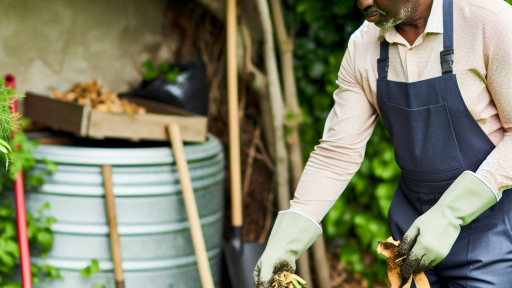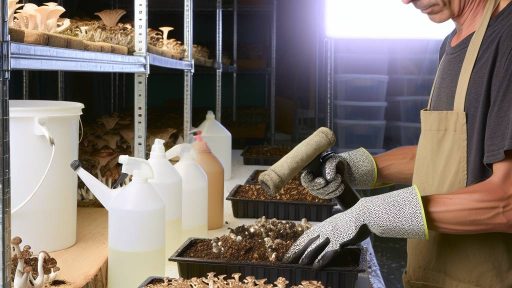Introduction to Heritage Gardening
Definition of Heritage Gardening
Heritage gardening focuses on preserving traditional plant varieties.
It emphasizes organic methods that sustain the environment.
Many enthusiasts cherish heritage gardening as a way to connect with history.
This practice often includes heirloom seeds that are passed down through generations.
Importance of Heritage Gardening
Heritage gardening plays a crucial role in biodiversity conservation.
It maintains genetic diversity in our food systems.
Furthermore, it helps to protect traditional agricultural knowledge.
Many communities thrive on the unique flavors and resilience of heirloom varieties.
Moreover, this gardening style supports local economies by promoting small-scale farming.
Connection to Organic Practices
Organic practices enrich the soil and enhance plant health.
They align closely with the principles of heritage gardening.
Using natural fertilizers and pest control methods preserves the ecosystem.
Additionally, organic practices encourage sustainable habits among gardeners.
Adopting these methods allows for a productive and healthy garden.
Understanding Organic Practices
Principles of Organic Gardening
Organic gardening emphasizes natural processes and biodiversity.
Transform Your Agribusiness
Unlock your farm's potential with expert advice tailored to your needs. Get actionable steps that drive real results.
Get StartedIt avoids synthetic chemicals and genetically modified organisms.
This practice focuses on soil health as the foundation for plant growth.
Moreover, it encourages crop rotation and companion planting.
Such strategies help maintain ecological balance in the garden.
Benefits of Organic Practices
Organic gardening promotes healthier produce free from harmful residues.
It enhances the flavor and nutritional value of fruits and vegetables.
Additionally, this approach protects local ecosystems and wildlife.
Organic practices improve soil structure and fertility over time.
Chemical-free gardening reduces pollution and conserves water resources.
Implementing Organic Techniques
Start by selecting organic seeds and plants for your garden.
Utilize compost to enrich soil naturally.
Employ mulching to retain moisture and suppress weeds.
Introduce beneficial insects to control pests without chemicals.
Maintain a diverse planting scheme for increased resilience.
Continuous Learning and Adaptation
Organic gardening requires ongoing education about best practices.
Stay informed about new methods and technologies in organic farming.
Participate in local gardening groups for shared knowledge.
Adapt your techniques based on what works best in your environment.
Evaluating and modifying your practices ensures long-term success.
Choosing the Right Heritage Seeds
Criteria for Selection
Selecting the right heritage seeds is crucial for successful gardening.
First, consider the seeds’ genetic diversity.
This ensures resilience against pests and diseases.
Next, evaluate the adaptability of the seeds to your local climate.
Seeds that thrive in your area will produce healthier plants.
Showcase Your Farming Business
Publish your professional farming services profile on our blog for a one-time fee of $200 and reach a dedicated audience of farmers and agribusiness owners.
Publish Your ProfileAlso, look for disease-resistant varieties.
This feature can save time and resources in managing plant health.
In addition, check the historical significance of the seeds.
Many heritage seeds carry unique flavors and culinary traits.
Lastly, consider the growing season and soil requirements.
Understanding these needs will help you maximize your garden’s yield.
Sources for Heritage Seeds
Finding reputable sources for heritage seeds is essential.
Local seed banks are a great place to start.
They often focus on regional varieties, adapting well to local conditions.
Online retailers also provide a wide selection.
Look for vendors that specialize in heirloom varieties.
Consider joining gardening clubs or communities.
Members often exchange seeds and recommend trustworthy sources.
Additionally, agricultural extension services may offer seed listings.
These organizations promote local agriculture and provide valuable resources.
Finally, don’t hesitate to ask fellow gardeners for recommendations.
Word-of-mouth can lead you to hidden gems in seed offerings.
Explore Further: Watering Techniques For City-Based Farms
Soil Health: Organic Amendments and Techniques for Fertility
Importance of Soil Health
Soil health influences plant growth and gardening success.
Healthy soil enhances nutrient availability to plants.
It also supports beneficial microorganisms and earthworms.
Organic Amendments
Organic amendments improve soil structure and nutrient content.
Common amendments include compost, well-rotted manure, and green manure.
Compost adds essential nutrients and improves moisture retention.
Rotted manure provides both nitrogen and organic matter.
Green manure crops enrich the soil when tilled under.
Benefits of Compost
Compost is a powerhouse of nutrients for plants.
It promotes microbial life, which supports plant health.
Furthermore, it enhances soil structure, encouraging root development.
Utilizing Manure
When using manure, always opt for well-rotted varieties.
Fresh manure can introduce pathogens and weeds.
Rotted manure boosts soil fertility effectively over time.
Techniques for Enhancing Soil Fertility
Practicing crop rotation helps maintain soil fertility.
It prevents soil depletion and enhances biodiversity.
Cover cropping protects soil during off-seasons and adds nutrients.
Additionally, mulching retains moisture and suppresses weeds.
Understanding Crop Rotation
Rotate different crop families each growing season.
This method reduces pests and diseases associated with specific crops.
Moreover, it improves soil health and biodiversity.
Benefits of Cover Cropping
Cover crops, such as clover and rye, fix nitrogen in soil.
Showcase Your Farming Business
Publish your professional farming services profile on our blog for a one-time fee of $200 and reach a dedicated audience of farmers and agribusiness owners.
Publish Your ProfileThey reduce soil erosion and improve soil structure.
When turned into the soil, they add organic matter and nutrients.
Maintaining Soil Health for a Thriving Garden
Maintaining soil health requires ongoing effort and attention.
Incorporating organic amendments enhances your garden’s productivity.
Using specific techniques fosters a thriving ecosystem.
Ultimately, healthy soil leads to gardening success.
Gain More Insights: Harvesting Tips For Urban Farming Success
Pest Management: Natural Solutions for Common Issues in Heritage Gardens
Introduction to Pest Management
Pest management is essential for successful heritage gardening.
Utilizing natural solutions promotes a healthier garden ecosystem.
These methods often protect beneficial insects and plants.
Identifying Common Pests
Common pests can threaten the health of your heritage garden.
Understanding these pests helps you manage them effectively.
Some frequent offenders include aphids, beetles, and caterpillars.
Natural Pest Control Methods
Organic pest control strategies are both effective and sustainable.
Here are some popular options:
- Introduce beneficial insects like ladybugs and lacewings.
- Utilize neem oil as a natural pesticide.
- Create natural barriers using row covers or floating row covers.
Encouraging Beneficial Insects
Beneficial insects can reduce pest populations naturally.
Planting a variety of flowers attracts these valuable allies.
For example, marigolds and dill are excellent options.
Utilizing Neem Oil
Neem oil disrupts the life cycle of many pests.
This natural pesticide is safe for plants and wildlife.
It should be applied in the early morning or late evening.
Preventive Measures
Preventive measures can minimize pest problems in your garden.
Ensure proper plant spacing to improve air circulation.
Healthy plants are less susceptible to pest infestations.
Regularly inspect your plants for early signs of pests.
Integrated Pest Management Approach
An integrated approach combines various methods for optimal results.
It incorporates natural controls with cultural, mechanical, and biological practices.
This comprehensive strategy enhances your garden’s resilience.
Effective Natural Pest Management
Effective pest management ensures the success of your heritage garden.
By using natural solutions, you protect both plants and the environment.
Stay observant and proactive for the best gardening results.
Find Out More: Harvesting Tips for Farm-Grown Mushrooms
Water Conservation Techniques
Importance of Water Conservation
Water conservation is crucial for sustainable gardening.
It helps to preserve natural resources and maintain an ecological balance.
Effective conservation practices lead to healthier plants and increased yields.
Implementing Rainwater Harvesting
Rainwater harvesting captures runoff from roofs and surfaces.
This technique reduces dependence on municipal water supplies.
Install rain barrels near downspouts for easy collection.
Use the harvested water for irrigation and plant care.
Utilizing Mulching Strategies
Apply mulch around plants to retain soil moisture.
Showcase Your Farming Business
Publish your professional farming services profile on our blog for a one-time fee of $200 and reach a dedicated audience of farmers and agribusiness owners.
Publish Your ProfileOrganic mulches improve the soil as they decompose over time.
Additionally, mulch suppresses weeds that compete for water.
Practicing Efficient Irrigation Techniques
Drip irrigation delivers water directly to plant roots.
This system minimizes evaporation and runoff effectively.
Adjust irrigation schedules based on weather conditions.
Consider using soaker hoses for smaller garden beds.
Ssoil Management for Water Retention
Amend soil with organic matter to enhance water retention.
Compost is an excellent addition for improving soil structure.
Conduct soil tests to understand nutrient needs.
Choosing Drought-Resistant Plants
Select plants that thrive in low-water conditions.
Native plants are often well-suited to local climates.
Group plants with similar water needs together.
Monitoring Water Usage
Keep track of water usage in your garden.
Use smart irrigation timers to optimize watering schedules.
Regularly check weather forecasts to adjust plans accordingly.
Discover More: Seed Starting Tips For Urban Farmers

The Role of Companion Planting: Enhancing Biodiversity and Yields
Understanding Companion Planting
Companion planting involves growing different plants together for mutual benefits.
This technique improves biodiversity in the garden.
It can increase crop yields and deter pests naturally.
Additionally, companion planting enhances soil health.
Benefits of Companion Planting
One major benefit is natural pest control.
Some plants repel insects harmful to others.
For example, marigolds deter nematodes and aphids.
Moreover, certain combinations can enhance nutrient uptake.
Legumes fix nitrogen, enriching the soil for nearby plants.
Common Companion Planting Pairings
- Tomatoes and basil enhance each other’s growth.
- Corn, beans, and squash form the Three Sisters.
- Carrots and onions improve flavor while deterring pests.
- Radishes can act as a trap crop to protect cucumbers.
Implementation Tips
Start by researching plants that benefit each other.
Consider spacing to ensure adequate sunlight and air circulation.
Rotate crops annually to maintain soil health and fertility.
Finally, observe and adjust pairings based on performance.
Seasonal Care for Heritage Gardens
Spring Preparation
Begin spring by assessing your garden’s condition.
Remove any dead plant material before new growth begins.
Next, amend the soil with organic compost to boost nutrients.
Consider testing soil pH to tailor your amendments.
Plan your planting schedule around your local frost dates.
Summer Maintenance
Summer requires consistent watering to keep plants hydrated.
Focus on mulching around plants to conserve moisture.
Regularly check for pests and apply organic treatments as needed.
Deadhead flowers to encourage blooming throughout the season.
Fall Preparation
As fall approaches, start preparing for colder months.
Harvest any remaining crops before the first frost.
Showcase Your Farming Business
Publish your professional farming services profile on our blog for a one-time fee of $200 and reach a dedicated audience of farmers and agribusiness owners.
Publish Your ProfileClear garden beds of debris to prevent disease spread.
Add a layer of mulch to protect roots during winter.
Consider planting cover crops to improve soil health over winter.
Winter Care
During winter, protect plants from harsh weather conditions.
Use burlap or row covers for delicate plants.
Regularly check for snow or ice build-up on branches.
Plan next year’s garden layout during the off-season.
Research new varieties or techniques to try in the coming year.
Community Resources: Local Organizations Supporting Organic Heritage Gardening
Community Gardens
Community gardens promote local food production and sustainable practices.
Groups such as Green Thumbs United offer workshops on organic gardening.
They provide resources for growing heritage plants in urban areas.
Additionally, these gardens foster community engagement and education.
Non-Profit Organizations
Multiple non-profit organizations focus on heritage gardening and sustainability.
For instance, The Heritage Garden Foundation supports educational initiatives.
They emphasize organic practices and biodiversity conservation.
Moreover, their programs often include local farmer collaborations.
Local Seed Libraries
Seed libraries offer free access to heritage and heirloom seeds.
Organizations like The Seed Exchange encourage seed saving and sharing.
These initiatives promote crop diversity and community resilience.
By participating, gardeners contribute to preserving local agricultural heritage.
Workshops and Events
Numerous organizations host workshops and events focused on organic practices.
Events such as the Organic Gardening Festival highlight local expertise.
Participants learn hands-on techniques for heritage gardening successes.
Additionally, these events provide networking opportunities for enthusiasts.
Online Resources and Networks
Many online platforms connect heritage gardeners with resources and advice.
Websites like Organic Gardening Network offer valuable tips and guidance.
Moreover, social media groups promote sharing experiences and knowledge.
These digital communities enhance learning and support among gardeners.
Additional Resources
Playing God in the Garden – Michael Pollan
Partnerships for Climate-Smart Commodities Project Summaries …




